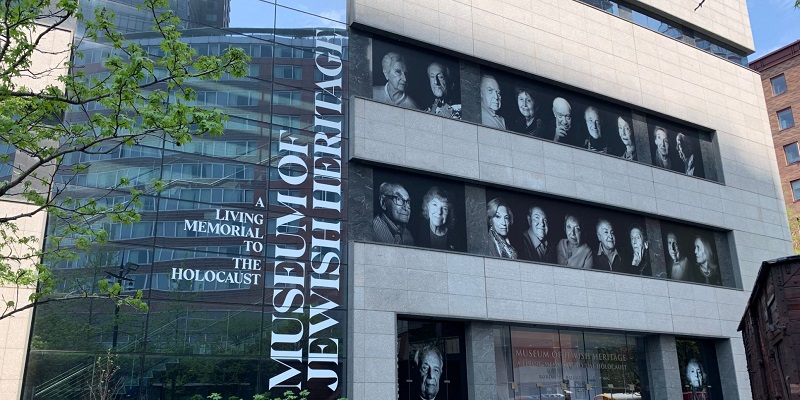- Experts have found a steady rise in anti-Semitic attacks in recent years in the US, reaching near-historic levels.
- Informed by its producers’ concern about rising anti-Semitism, “Auschwitz. Not long ago. Not far away,” at New York’s Museum of Jewish Heritage identifies the evolution of social and political elements that led to at least one million deaths in the concentration camp and millions of more deaths in the Holocaust at large.
- The exhibition is the largest on Auschwitz ever presented in the US, and is about to open in New York City, featuring more than 700 original objects and 400 photographs never before seen in this country.
On April 27, the last day of Passover, a gunman killed one person when he opened fire during services at a Poway, California synagogue. The shooting came on the six-month anniversary of a shooting that killed 11 at a Pittsburgh synagogue.
These tragic attacks unfolded alongside a steady climb of violent anti-Semitic attacks in the US. Days after the shooting in Poway the Anti-Defamation League announced that the already unprecedented rates of anti-semitic attacks doubled nationally from 2017 to 2018.
The uptick in hate-based violence targeting Jewish people sets a tense and appropriate context for “Auschwitz. Not long ago. Not far away,” at the Museum of Jewish Heritage – A Living Memorial to the Holocaust in New York City. The unprecedented exhibit of Holocaust artifacts set to debut this month tracks the devolution of political unrest and cultural divide into the genocide of six million Jews through the lens of the Holocaust’s largest center of death, the Auschwitz-Birkenau concentration camp.
The first sections of the exhibit focus on the basic social and political tensions that, in conjunction with widely spread racist philosophy and propaganda, put vulnerable groups like Jewish, black, gay, disabled, and Roma people in the crosshairs of a frustrated society and leaders who favoured misinformation.
Read the article Ellen Cranley in Business Insider Australia.

